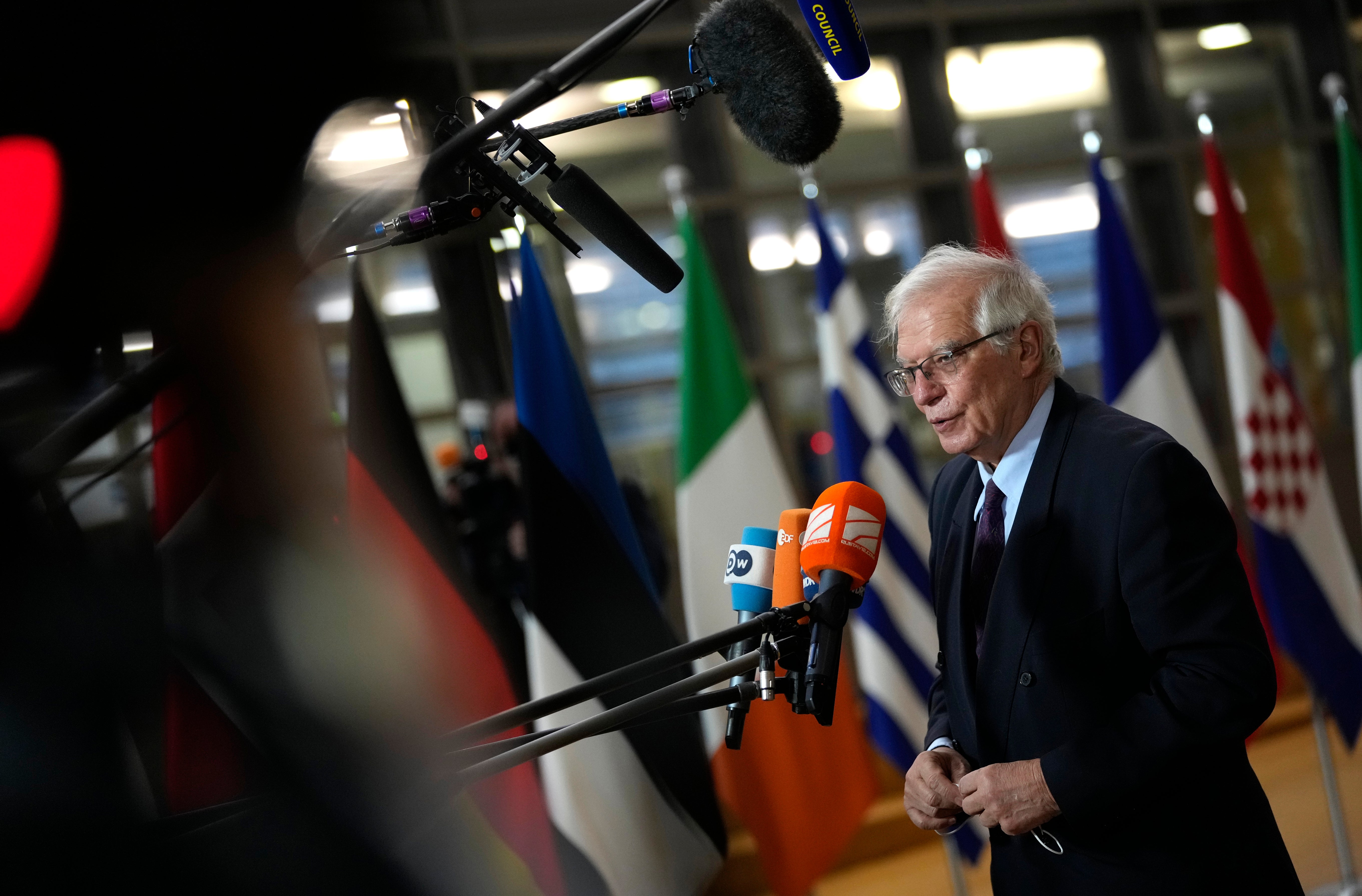EU ministers debate ways to shield Ukraine from Russia
European Union foreign ministers are discussing how to thwart the threat of a possible Russian invasion of Ukraine and what measures to take should Moscow decide to send its troops across the border

Your support helps us to tell the story
From reproductive rights to climate change to Big Tech, The Independent is on the ground when the story is developing. Whether it's investigating the financials of Elon Musk's pro-Trump PAC or producing our latest documentary, 'The A Word', which shines a light on the American women fighting for reproductive rights, we know how important it is to parse out the facts from the messaging.
At such a critical moment in US history, we need reporters on the ground. Your donation allows us to keep sending journalists to speak to both sides of the story.
The Independent is trusted by Americans across the entire political spectrum. And unlike many other quality news outlets, we choose not to lock Americans out of our reporting and analysis with paywalls. We believe quality journalism should be available to everyone, paid for by those who can afford it.
Your support makes all the difference.European Union foreign ministers met Monday to discuss how to thwart the threat of a possible new Russian invasion of Ukraine and what measures to take should Moscow decide to send its troops across the border.
U.S. intelligence officials say Russia has moved 70,000 troops toward Ukraine’s border and is preparing for a possible invasion early next year. Moscow denies it has any plans to attack Ukraine and rejects Western concerns as part of a smear campaign.
“We are on deter mode,” to dissuade Russia, EU foreign policy chief Josep Borrell said.
Borrell, who is chairing Monday's meeting, said that no decisions about sanctions against Russia would be taken but that the ministers would discuss what steps to take and when, in coordination with the United States and Britain.
“In any case, we will send a clear signal that any aggression against Ukraine will have a high cost for Russia” and underline the 27-country bloc’s support for Ukraine’s sovereignty and territorial integrity, Borrell told reporters in Brussels
Lithuania warned that Russia’s troop movements of late were no mere menace.
“We are convinced that Russia is actually preparing for the all-out war against Ukraine,” Lithuanian Foreign Minister Gabrielius Landsbergis said.
If carried out, it would be “an unprecedented attack on a country that shows a Western direction. That means that the answer has to be unprecedented from the Western countries as well,” Landsbergis said.
But the EU’s big powers, France and Germany, and other members of the 27-nation further from Russia’s borders, do not share the same assessment as the U.S., Poland and the Baltic countries of Estonia, Latvia and Lithuania. They acknowledge Russia’s troop movements but do not consider an attack imminent.
In 2015, France and Germany brokered a peace agreement that helped end large-scale hostilities in Ukraine’s east, where Ukrainian forces have been fighting Russia-backed separatists since 2014, when Russia annexed Ukraine’s Crimean Peninsula.
Efforts to reach a political settlement to the separatist conflict, which has killed more than 14,000 people in seven years, have failed. Sporadic skirmishes continue along the tense line of contact. Russia so far refuses to meet France and Germany for more “Normandy format” peace talks.
The EU foreign ministers' meeting is a prelude to a busy week of diplomacy in Brussels focused on Ukraine. The leaders of EU nations meet Wednesday with their counterparts from Ukraine, Armenia, Azerbaijan, Georgia and Moldova. An EU summit on Thursday is expected to also focus on what actions might be necessary.